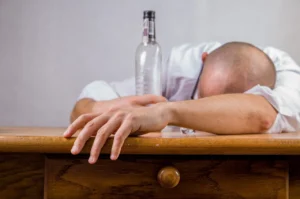 Alcohol cravings and urges are among the major impediments to alcohol use disorder recovery. They are response patterns that manifest due to mood changes, environmental conditions, stress, and other triggers. While they may appear to come from nowhere, cravings are usually triggered by a feeling, environmental situation, or memory about their past alcohol use. This is why recovery institutions encourage recovering alcoholics to stay away from places, environments, people, and things associated with their alcohol abuse.
Alcohol cravings and urges are among the major impediments to alcohol use disorder recovery. They are response patterns that manifest due to mood changes, environmental conditions, stress, and other triggers. While they may appear to come from nowhere, cravings are usually triggered by a feeling, environmental situation, or memory about their past alcohol use. This is why recovery institutions encourage recovering alcoholics to stay away from places, environments, people, and things associated with their alcohol abuse.
An alcohol craving trigger doesn’t always have to be negative; positive emotions like happiness and success can also induce alcohol urges. Cravings can be subjective and personal or general across various groups of people. To successfully fight cravings, remember that they’re time-limited, and they can go away within a short period if you resist them. Below are tips for dealing with alcohol urges and cravings.
1. Seek help
Keeping to yourself regarding your alcohol urges and cravings may cause you to eventually surrender, causing a relapse. However, developing a network of people you can trust to walk with you towards your recovery can be rewarding. You may consider seeking advice and getting treatment from a reputable substance abuse recovery institution or a supportive family and friends’ group.
Seeking rehabilitation and professional detoxification services can also help boost your mental, physical, and emotional health. Alternatively, use medication or join support groups to get help overcoming your alcohol addiction.
2. Know your triggers
Knowing your alcohol triggers helps you effectively predict your cravings. Determining the places, smells, sights, memories, people, social events, and emotions that activate the urge to drink can help you minimize, avoid, or anticipate and find ways to fight them.
The common triggers include places like bars, the people you used to drink with, specific times of the day when you used to drink, and alcohol adverts. Celebrations, vacations, holidays, stress, anxiety, depression, and other negative emotions trigger. Identifying your triggers will help prevent triggers before they occur.
3. Create distractions
Staying idle also contributes to alcohol urges and cravings, mainly if you’ve used alcohol to fight boredom. Keep yourself busy with a range of fun and fulfilling activities to distract you from drinking urges. You can also spend time with friends and family, learn new skills, enjoy your hobbies and participate in outdoor adventures. If you feel the urge to drink, try focusing your attention on things like swimming, running, and sports games that give you pleasure while boosting sobriety.
4. Practice mindfulness and meditation
Mindfulness allows you to purposely focus on the present moment and accept it without judgment to achieve an alert state of focused relaxation. It lets you identify and accept body sensations, emotions, and senses. Meditation and mindfulness also help you cope with cravings for addictive behavior or substances and let them pass. Through practicing mindful meditation, you can cultivate mindfulness and learn how to systematically focus your attention. You can learn how to meditate alone or with the help of a group or an instructor.
5. Remind yourself about the consequences
Reminding yourself about the consequences of indulging in your cravings can help you control the urge to drink. Continuous alcohol abuse weakens your mental health, making you vulnerable to depression, stress, and anxiety. Letting cravings control you can lead to the loss of relationships you’re trying to rebuild, job, and trust from those close to you. Remind yourself of all the overall health risks and consequences of alcohol intake and determine if it’s worth losing everything you have for the sake of alcohol.
6. Consider exercising
Exercising can be an effective way to deal with cravings. This is because exercises improve your mood and increase anxiety. Exercising not only boosts your willpower but also enhances emotional regulation, helping you fight alcohol drinking urges.
7. Eat food that reduces alcohol craving
If you are a recovering addict, coping with your cravings can be challenging, but the right foods can help. Consider choosing the foods that support brain chemistry, enhance steady blood sugar all day, and boost digestion as they help you manage sobriety. The craving buster foods to choose from are whole grain bread, raw spinach, peanut butter, salmon, plain, organic yogurt, bananas, and walnuts. You may also practice mindful eating to effectively reduce alcohol cravings.
8. Take medication
When you become more alcohol dependent, cravings and withdrawal symptoms become a problem when you try quitting. If you’re recovering from alcohol use disorder, there are approved alcohol craving medications you can take. Alternatively, consider cognitive behavioral therapy to reduce alcohol cravings.
Endnote
Managing alcohol cravings isn’t easy, and without intention and strong will, you may relapse. Consider using the above tips to deal with alcohol urges and desires.

